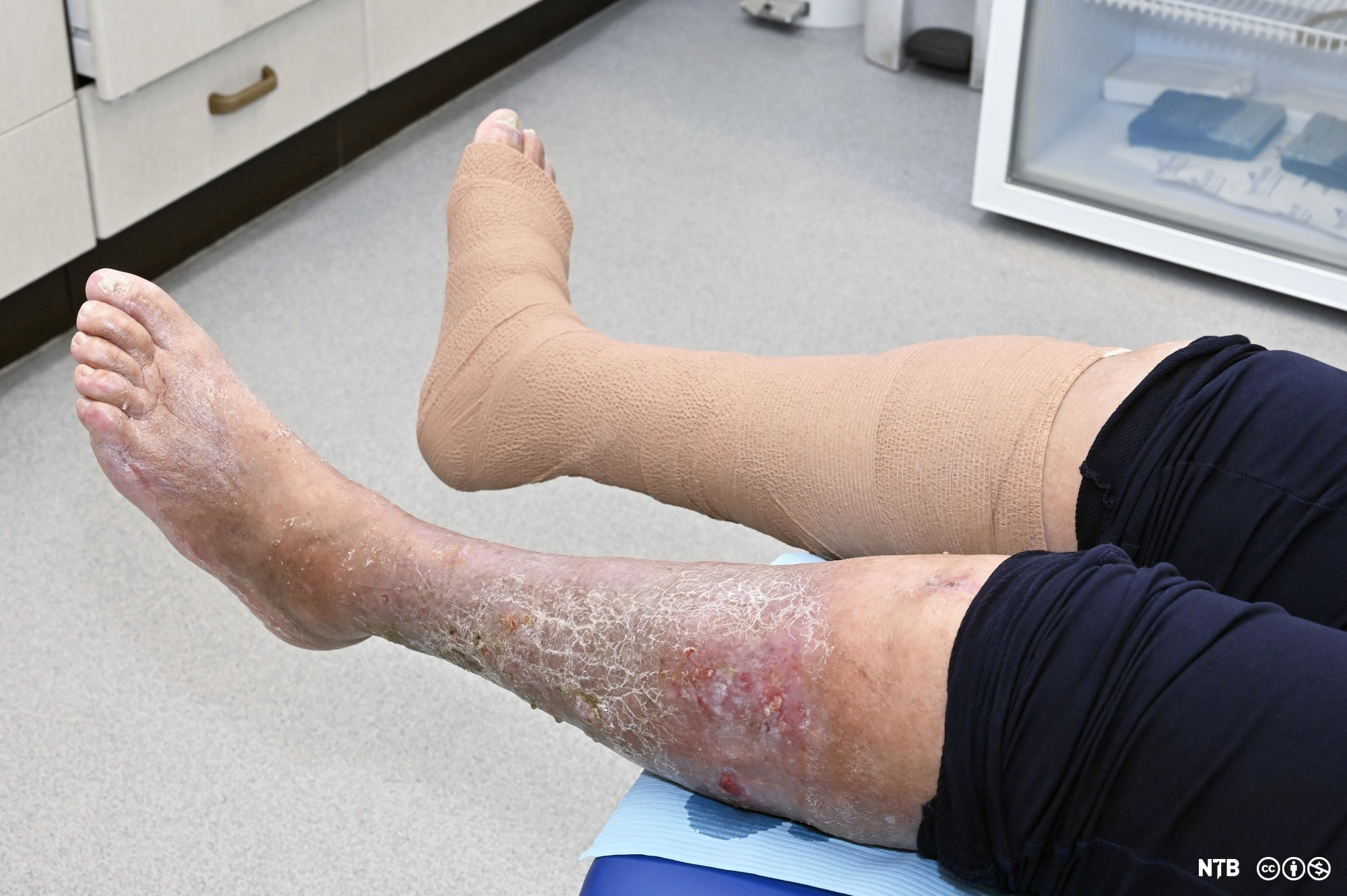Leg wounds that persist for weeks or months without improvement may be both frustrating and concerning. When wounds fail to heal within the expected timeframe, understanding the underlying causes becomes necessary for effective treatment. Knowing the factors that prevent leg wounds from healing naturally and exploring the available wound care treatment options can be beneficial.
What Causes Leg Wounds?
Several factors may lead to the development of chronic leg wounds. Vascular disease represents the primary cause of chronic leg wounds, accounting for 80-90% of all cases. This category includes conditions affecting both arteries and veins, which play different but equally significant roles in wound healing.
Arterial disease occurs when plaque buildup narrows blood vessels, restricting the flow of oxygen-rich blood to tissues. This reduced circulation limits the nutrients and oxygen available for tissue repair and regeneration. The restricted blood flow creates an environment where wounds cannot receive the resources needed for proper healing.
Venous disease develops when valves in the veins malfunction, causing blood to flow backward instead of returning efficiently to the heart. This backflow leads to blood pooling, increased pressure, and swelling in the lower extremities. The resulting poor circulation and fluid accumulation create conditions that impede the natural healing process.
Beyond vascular disease, several other conditions may contribute to chronic leg wounds:
- Diabetes affects blood sugar regulation and can damage blood vessels over time
- Prolonged pressure on specific areas of the leg may cause tissue breakdown
- Trauma or injury to the skin and underlying tissues
Why Don’t They Heal Naturally?
The healing process depends on a variety of natural body processes. When these systems fail to function properly, wounds cannot progress through the normal stages of healing. Factors that may prevent wounds from healing on their own include:
- Impaired Blood Circulation: Poor circulation prevents nutrients and oxygen from reaching the wound site. Without these resources, cells cannot perform the repair work needed for healing.
- Reduced Immune Response: Compromised circulation affects the body’s ability to deliver immune cells to the wound site. This reduction in immune response makes wounds more susceptible to infection and slows the inflammatory response that initiates healing.
- Cellular Dysfunction: When tissues do not receive adequate oxygen and nutrients, cellular function becomes impaired. Cells responsible for tissue repair and new blood vessel formation cannot operate effectively in this compromised environment.
- Mechanical Factors: Swelling and increased pressure in the lower extremities can physically interfere with wound healing. The mechanical stress on tissues prevents proper wound closure and can cause existing wounds to worsen over time.
How Are They Treated?
Treatment for chronic leg wounds typically involves a comprehensive approach that addresses both the wound itself and the underlying vascular conditions that prevent healing. Specialized wound care focuses on creating optimal conditions for healing. This approach includes regular cleaning, application of appropriate dressings, and debridement to remove dead tissue that impedes healing. Some treatment centers also utilize hyperbaric oxygen therapy to increase oxygen delivery to tissues.
Addressing the underlying vascular disease represents one of the most effective approaches to promoting wound healing. Modern minimally invasive procedures can restore proper blood flow to affected areas. These procedures target the root cause of poor circulation, whether arterial or venous in origin.
Seek Out Professional Wound Care
Chronic leg wounds require specialized treatment that addresses both the wound itself and the underlying vascular conditions. Professional wound care centers work in conjunction with vascular specialists to provide comprehensive treatment approaches. The combination of modern wound care techniques and minimally invasive vascular procedures offers effective treatment options for most patients with chronic leg wounds.

